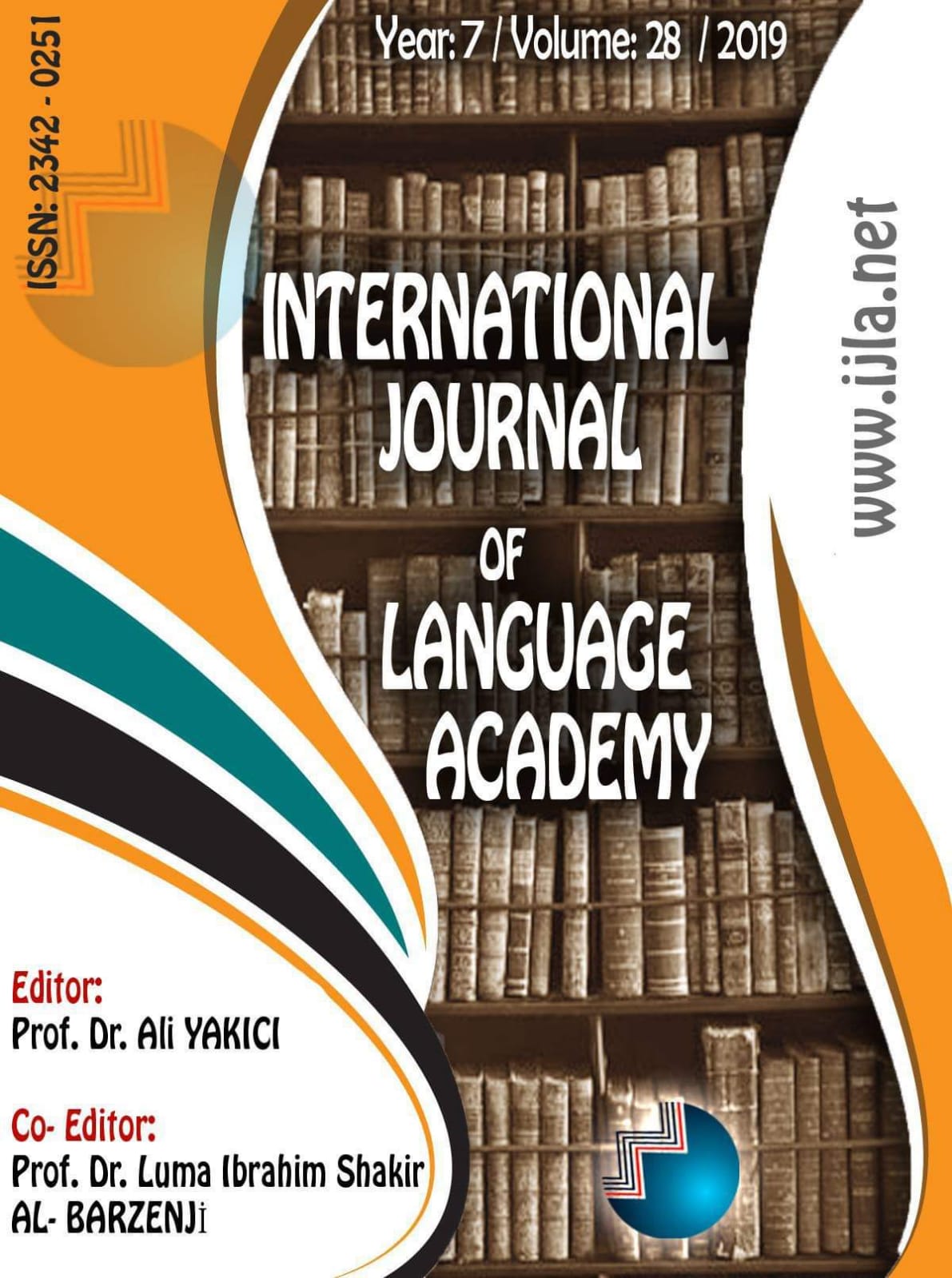Author :
Abstract
Post-Modern American poetry is thematically diverse. It is distinguished by its social themes of familial relationships, class relations and the impact of memory in the United States. Class identity is a lived experience, a set of relationships, expectations, and legacies. It is a probe into social inequalities, and economic stratifications. The poetry that illuminates such experience and relationships reveals class as a shaping force. Poetry in such context tends to be a cultural expression, responsive to economic and historical changes.What culminates Philip Levine's poetry is its treatment of social justice that is galvanized by his belonging to the working class and the power of his memories towards his people's suffering. The memories of the poet echo a class-based undertone. He descends from a lower-class Russian-Jewish immigrant family who survived through difficult times and harsh circumstances. Consequently his voice, partly confessional and partly autobiographical, documents his father's efforts in bestowing a decent life upon his family and documents the suffering of the American lower class taken his father as a stereotype of his people.
Keywords
Abstract
Post-Modern American poetry is thematically diverse. It is distinguished by its social themes of familial relationships, class relations and the impact of memory in the United States. Class identity is a lived experience, a set of relationships, expectations, and legacies. It is a probe into social inequalities, and economic stratifications. The poetry that illuminates such experience and relationships reveals class as a shaping force. Poetry in such context tends to be a cultural expression, responsive to economic and historical changes.What culminates Philip Levine's poetry is its treatment of social justice that is galvanized by his belonging to the working class and the power of his memories towards his people's suffering. The memories of the poet echo a class-based undertone. He descends from a lower-class Russian-Jewish immigrant family who survived through difficult times and harsh circumstances. Consequently his voice, partly confessional and partly autobiographical, documents his father's efforts in bestowing a decent life upon his family and documents the suffering of the American lower class taken his father as a stereotype of his people.
Keywords
- Coles, N. and Zandy J. (2007). American Working-Class Literature: An Anthology. Oxford: Oxford University Press.
- Finn, P. (2004). “Philip Levine, Bard of the Industrial Heartland.” New Labor Forum, (13), 3, pp. 128–134. Retrieved from www.jstor.org/stable/40342506.
- Hirsch, E. (1993). "The Visionary Poetics of Philip Levine and Charles Wright" in The Columbia History of American Poetry, edited by Jay Parini. New York: Columbia University Press.
- Jackson, R. (1989). “The Long Embrace: Philip Levine's Longer Poems.” The Kenyon Review, (11), 4, pp. 160–169. Retrieved from www.jstor.org/stable/4336180.
- Jewell, M. S. (2005)."LEVINE, PHILIP (1928-)" in The 20th- American Poetry, edited by Burt Kimmelman. New York: Fact on File, Inc.
- Kirk, J. (2007). Class, Culture and Social Change on the Trail of the Working Class. New York: Palgrave Macmillan.
- Lehman, D. (2006). The Oxford Book of American Poetry. Oxford: Oxford University Press.
- Levine, P. (1979). Ashes: Poems New & Old. New York: Atheneum.
- Levine, P. (1979). 7 Years from Somewhere. New York: Atheneum.
- Milne, I. M. and Ruby, M. K. Eds. (2000). Poetry for Students. Vol. 8. Detroit: Gale.
- Miola, R. (2001). "Levine, Philip." In Contemporary Poets, edited by Thoman Riggs. MI: St. James Press.
- Rumiano, J. E. (2007). "They Know "What Work Is": Working Class Individuals in the Poetry of Philip Levine." (Ph.D. Dissertation), Georgia State University. Retrieved from https://scholarworks.gsu.edu/english_diss/24
- Semansky, C. (2000). Essay on ""Starlight." Poetry for Students. Edited by. Ira Mark Milne and Mary K. Ruby. 8. Detroit: Gale.
